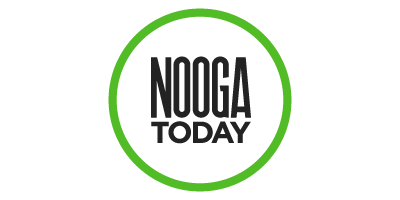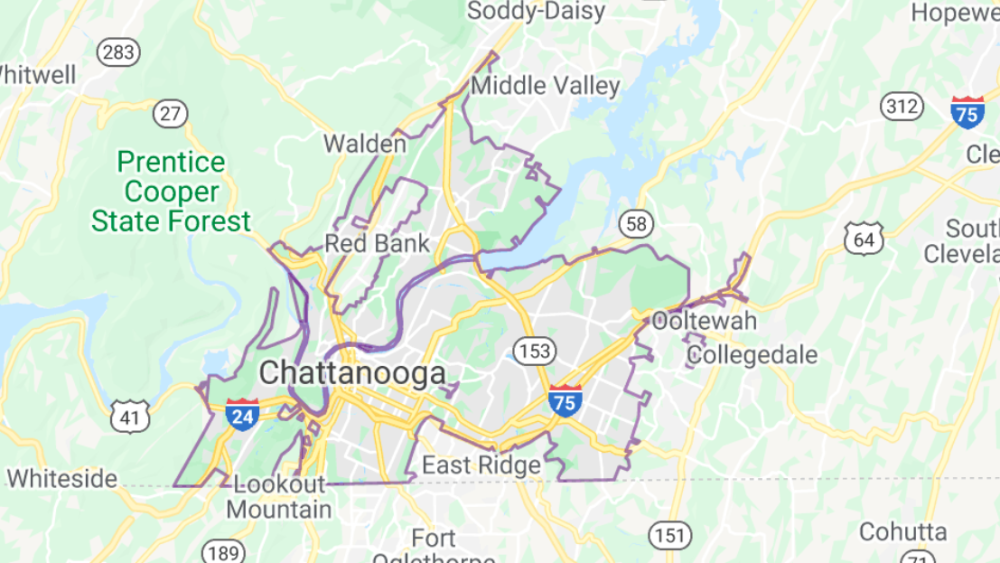Chattanooga Mayor Andy Berke has issued a “shelter-in-place” executive order that goes into effect Friday at midnight, essentially (12:01 a.m., Saturday morning, technically).
The order restricts:
○ non-essential travel
○ suspends access to city-owned public spaces, like parks
○ closes all non-essential businesses
○ closes child care programs that aren’t serving essential personnel
Confused about what this all means? We’re here to break it down for you.
Who: This ordinance applies to everyone in the City of Chattanooga. You should stay in your home at all times, with a few exceptions that we’ll get to in a minute.
What: Mayor Berke issued an executive order Thursday afternoon.
When: The order is effective 12:01 a.m., Saturday, April 4. It’s in effect for seven days but may be extended, and residents should expect to remain in place until at least the end of April. Where: Chattanooga city limits, outlined in the map below.
Why: Chattanooga is experiencing “community spread,” which means that people who are getting sick did not get it from someone who traveled out of the area. Mayor Berke said that — although he understands this is disruptive and painful for many people and businesses — the virus is spreading too quickly and has the potential to overwhelm the local hospital systems in the coming weeks.
Here’s what you can do:
○ Go to work at an essential business (more about that in a minute)
○ Get groceries
○ Get medical attention
○ Pick up take out
○ Walk your dog in your neighborhood
○ Exercise outside (while staying 6-feet away from others)
○ Get deliveries
Here’s what you can not do:
○ Go to city parks/properties, including the Walnut Street Bridge
○ Go to a friend’s house to hang
○ Go to work at non-essential businesses
○ Take your child to daycares, which must close now
○ Take a drive, scooter or motorcycle ride for the fun of it
○ Travel outside the area, unless it’s to care for someone
○ Use public transportation, unless it’s for essential duties
How is this different from Gov. Lee’s order?
Gov. Lee’s order initially contained recommendations. Mayor Berke’s order contains directions. But on Thursday afternoon, Lee also issued a “requirement” that all Tennesseans stay at home — unless conducting essential business — through April 14.
How is this being enforced?
CPD is looking for voluntary compliance with this and enforcement will be a last resort. If officers encounter businesses that refuse to comply, they will take steps toward getting that biz in compliance. The goal is education as a first approach.
More information, including essential businesses
The city’s FAQ page has answers to the rest of your questions (yes, you can still go to the liquor store) and check out the list of essential businesses on that page.
Below is the list of essential business from the city’s website. More information here.
○ Healthcare operations, doesn’t include gyms
○ Grocery and beverage stores, certified farmers’ markets, farm and produce stands, supermarkets, food banks, convenience stores, and other similar establishments
○ Food cultivation, including farming
○ Businesses that provide food, shelter, and social services
○ Newspapers, television, radio, and other media services
○ Gas stations and auto-supply, auto-repair
○ Banks and related financial institutions
○ Hardware stores, home and business repair, construction, and facilities design businesses
○ Plumbers, electricians, exterminators, cleaning, janitorial
○ Businesses providing mailing, shipping and logistic services, including post office boxes
○ Laundromats, dry cleaners, and laundry service providers
○ Electronic, cell phone, and internet retail businesses
○ Delivery or carry out
○ Manufacturing companies, distributors, and supply chain companies producing and supplying essential products
○ Businesses that ship or deliver groceries, food, or other goods
○ Transportation services including buses, airlines, taxis, and other private transportation providers (such as Uber and Lyft)
○ Home-based care for seniors, adults, or children, people with developmental disabilities, intellectual disabilities, substance use disorders, and/or mental illness
○ Residential facilities and shelters for seniors, adults, children, people with developmental disabilities, intellectual disabilities, substance use disorders, and/or mental illness
○ Hotels and motels
○ Funeral homes, crematoriums, mortuary and burial services
○ Private waste removal and recycling services
○ Blood donor operations










